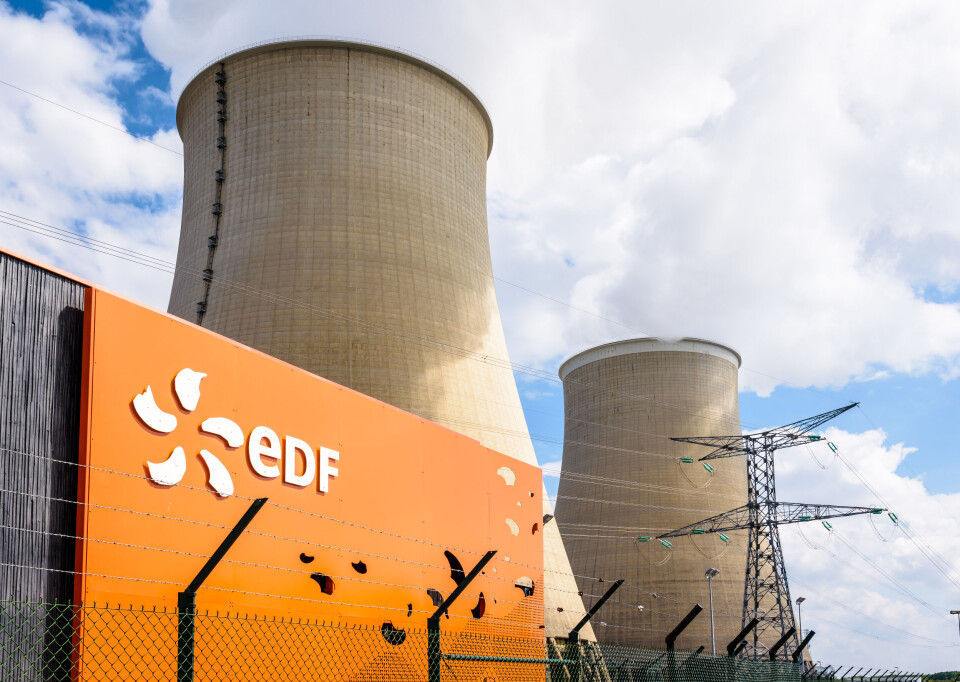-
Loire vineyard invites Taylor Swift to visit after documentary cameo
Disney+ documentary puts family vineyard in the international spotlight
-
39 bombs wash up on Gironde beach following World War Two bunker collapse
Shells were defused by experts but prefects warn others may remain
-
French airports request EES rollout suspension this summer
Risk of congestion feared if April full deployment of system for all eligible passengers takes place
‘A particularly deep crack’: Alarm raised over French nuclear plant
The discovery at the plant in Normandy has sparked calls for state-owned energy firm EDF to revise its safety strategy.

France’s nuclear watchdog has raised the alarm after the discovery of a crack at a plant in Normandy.
It was found on a cooling circuit pipe that injects water into the reactor core in the case of an incident.
The discovery at Penly nuclear plant on France’s northern coastline sparked calls for state-owned energy company EDF to “revise its strategy” when it comes to carrying out safety checks.
France’s Nuclear Safety Authority (L'Autorité de sûreté nucléaire) said the crack had not had any impact on people or the environment.
Présence d’une fissure de profondeur importante sur le réacteur 1 de la centrale #nucléaire #EDF de #Penly https://t.co/RBOtjQJg6c @EDFPenly
— Autorité de sûreté nucléaire et de radioprotection (@ASNR_FR) March 7, 2023
Nevertheless, Karine Herviou, deputy director-general of the Institute for Radiation Protection and Nuclear Safety, told FranceInfo that the discovery at Penly was a “serious problem”.
"It's a particularly deep crack," she added. "It is 23 millimetres on a pipe with a thickness of 27mm. We were therefore quite close to a leak."
She specified, however, that in the case of a leak, “it would have been limited to the containment structure," and not be released into the wider environment.
Read more:MAP: Where are the six new nuclear reactors planned for in France?
Part of a wider problem
The plant at Penly is currently out of action for other repairs.
EDF has been carrying out general maintenance and extensive repair work on a number of their 56 nuclear reactors - including at Penly - that they deem are ‘sensitive’ to cracks, but these specific pipes were not seen as high risk, so had not been a priority in previous inspections.
More extensive checks, and a delay to certain reactors coming back online to confirm safety, should be part of EDF’s new strategy, added Ms Herviou.
EDF still believes that the reactor at Penly will be back online by May.
The issue of stress corrosion at nuclear plants has been a huge problem for EDF since the first discovery of a crack of this type at the Civaux plant in 2021.
Fifteen plants have been closed or halted for maintenance since then, leading to a drop in nuclear capability, and the cost of lowered production and repairs at nuclear plants contributed the lion’s share of EDF’s €17.9 billion loss in 2022.
A lack of technical experts and a prior lack of investment in nuclear infrastructure means EDF is struggling to get reactors back online in time to deal with energy demands, and this setback may mean further delays, as safety checks will now need to be more stringent.
Nuclear reactors are currently seeing a 30-year low in their energy production in France, a huge dent for the energy supplier considering around 70% of the country’s electricity is produced in nuclear plants.
Related articles
‘Macron’s nuclear power push is high-risk and high-reward for France’
























